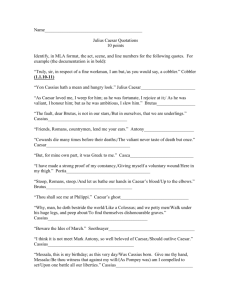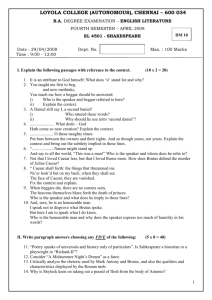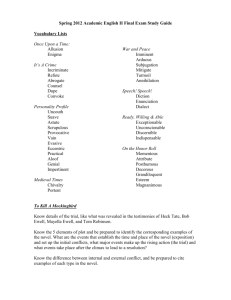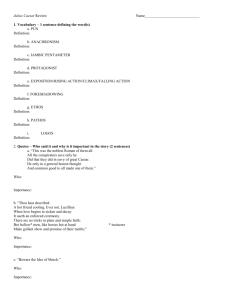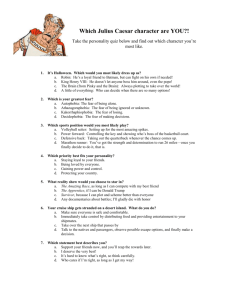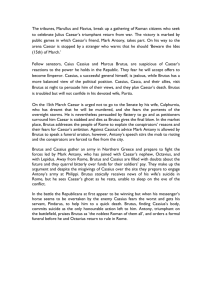Jason and the Argonauts Discussion Questions
advertisement
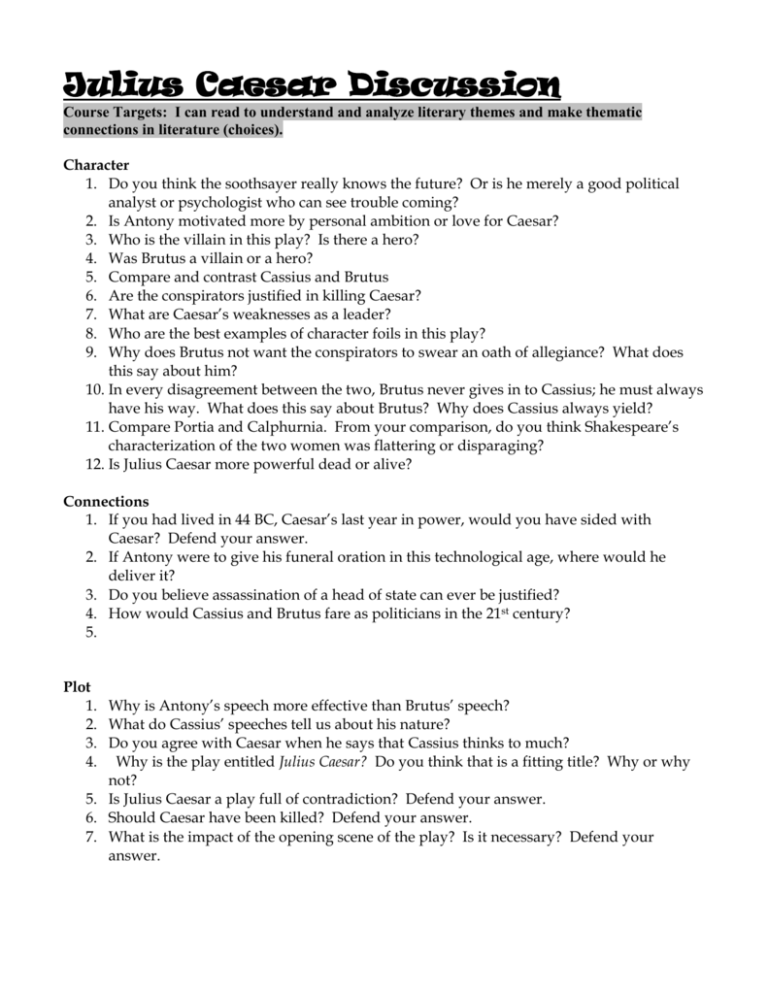
Julius Caesar Discussion Course Targets: I can read to understand and analyze literary themes and make thematic connections in literature (choices). Character 1. Do you think the soothsayer really knows the future? Or is he merely a good political analyst or psychologist who can see trouble coming? 2. Is Antony motivated more by personal ambition or love for Caesar? 3. Who is the villain in this play? Is there a hero? 4. Was Brutus a villain or a hero? 5. Compare and contrast Cassius and Brutus 6. Are the conspirators justified in killing Caesar? 7. What are Caesar’s weaknesses as a leader? 8. Who are the best examples of character foils in this play? 9. Why does Brutus not want the conspirators to swear an oath of allegiance? What does this say about him? 10. In every disagreement between the two, Brutus never gives in to Cassius; he must always have his way. What does this say about Brutus? Why does Cassius always yield? 11. Compare Portia and Calphurnia. From your comparison, do you think Shakespeare’s characterization of the two women was flattering or disparaging? 12. Is Julius Caesar more powerful dead or alive? Connections 1. If you had lived in 44 BC, Caesar’s last year in power, would you have sided with Caesar? Defend your answer. 2. If Antony were to give his funeral oration in this technological age, where would he deliver it? 3. Do you believe assassination of a head of state can ever be justified? 4. How would Cassius and Brutus fare as politicians in the 21st century? 5. Plot 1. Why is Antony’s speech more effective than Brutus’ speech? 2. What do Cassius’ speeches tell us about his nature? 3. Do you agree with Caesar when he says that Cassius thinks to much? 4. Why is the play entitled Julius Caesar? Do you think that is a fitting title? Why or why not? 5. Is Julius Caesar a play full of contradiction? Defend your answer. 6. Should Caesar have been killed? Defend your answer. 7. What is the impact of the opening scene of the play? Is it necessary? Defend your answer.

